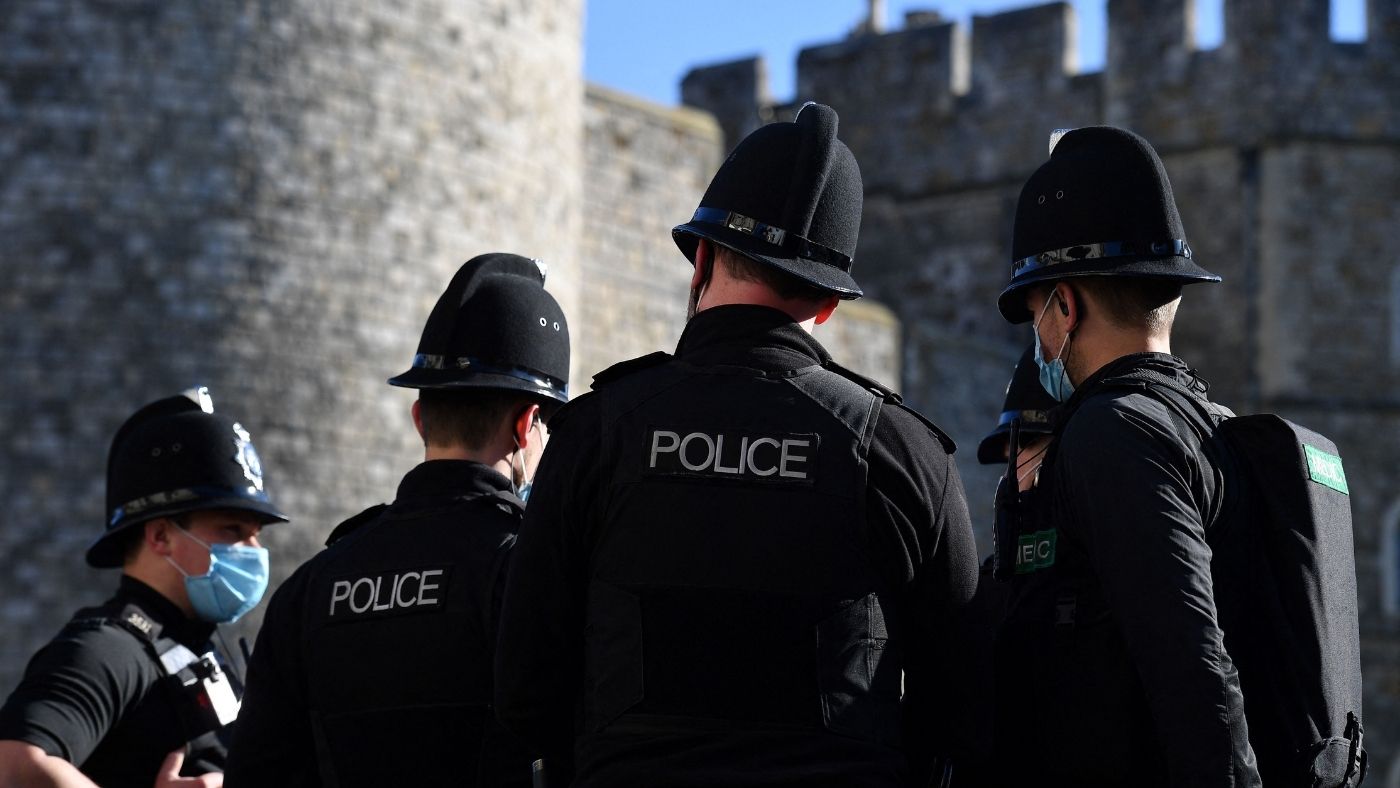What counts as a hate crime in the UK?
Home secretary calls for a review into the reporting of ‘non-crime hate incidents’

A free daily email with the biggest news stories of the day – and the best features from TheWeek.com
You are now subscribed
Your newsletter sign-up was successful
The home secretary has ordered a review into the mandatory reporting of what are known as “non-crime hate incidents”.
Verbal abuse, bullying, offensive jokes, hoax calls and malicious complaints could all fall into the category of hate incidents but fall short of being criminal offences.
Priti Patel wants the College of Policing, the police service’s professional body, to review whether these should be reported on a person’s criminal record, which critics say can present problems for individuals when applying for jobs or having a DBS check.
The Week
Escape your echo chamber. Get the facts behind the news, plus analysis from multiple perspectives.

Sign up for The Week's Free Newsletters
From our morning news briefing to a weekly Good News Newsletter, get the best of The Week delivered directly to your inbox.
From our morning news briefing to a weekly Good News Newsletter, get the best of The Week delivered directly to your inbox.
Sarah Phillimore, barrister and co-founder of campaign group Fair Cop, told The Telegraph she hopes the review “marks the beginning of the end for the well-intentioned but deeply flawed hate crimes guidance”.
However, the College of Policing’s Iain Raphael has warned that, without recording the incidents, officers risk “having a blind spot in their local understanding, hampering their ability to protect members of vulnerable and marginalised groups”. Raphael cited the Stephen Lawrence inquiry report as showing the need for officers to understand “how hate can escalate”.
How is a ‘hate crime’ different to a ‘non-crime hate incident’?
A hate crime is defined by the Crown Prosecution Service as an incident where the offending party is “motivated by hostility or demonstrates hostility” towards a person’s race, religion, disability, sexual orientation or transgender identity. In order to prosecute an alleged hate crime “it is necessary to demonstrate hostility” through evidence, the College of Policing explains.
A free daily email with the biggest news stories of the day – and the best features from TheWeek.com
Verbal abuse, damage to property, threats and intimidation can all be classed as forms of hate crime. In March, following the murder of Sarah Everard, Patel “hinted” that the government will look into whether misogyny should be recorded as a hate crime, according to The Guardian.
If it is found that a reported incident can not be classed as a criminal offence but the victim “or any other person perceives that the incident was motivated wholly or partially by hostility”, the current policy outlined by the College of Policing means the incident will be recorded as a non-crime hate incident, or NCHI, and put on the perpetrator’s criminal record.
What does Patel want to change?
Critics of the current policy say that the potential ramifications for the perpetrator of an NCHI infringes upon their right to freedom of speech. “We need to avoid a situation where something you said entirely lawfully, possibly in the heat of the moment and some time ago can blight your employment prospects permanently,” writes The Spectator’s Andrew Tettenborn.
Patel has told the College of Policing to change guidelines that state that NCHIs be recorded on police files, according to The Times. If the police review of the policy leads to the removal of the guidance, it could signal the end of NCHI reporting.
“These so called non-crime hate incidents have a chilling effect on free speech and potentially stop people expressing views legally and legitimately,” the paper reports a Whitehall source as saying.
Julia O'Driscoll is the engagement editor. She covers UK and world news, as well as writing lifestyle and travel features. She regularly appears on “The Week Unwrapped” podcast, and hosted The Week's short-form documentary podcast, “The Overview”. Julia was previously the content and social media editor at sustainability consultancy Eco-Age, where she interviewed prominent voices in sustainable fashion and climate movements. She has a master's in liberal arts from Bristol University, and spent a year studying at Charles University in Prague.
-
 Will increasing tensions with Iran boil over into war?
Will increasing tensions with Iran boil over into war?Today’s Big Question President Donald Trump has recently been threatening the country
-
 Corruption: The spy sheikh and the president
Corruption: The spy sheikh and the presidentFeature Trump is at the center of another scandal
-
 Putin’s shadow war
Putin’s shadow warFeature The Kremlin is waging a campaign of sabotage and subversion against Ukraine’s allies in the West
-
 Why have homicide rates reportedly plummeted in the last year?
Why have homicide rates reportedly plummeted in the last year?Today’s Big Question There could be more to the story than politics
-
 How the ‘British FBI’ will work
How the ‘British FBI’ will workThe Explainer New National Police Service to focus on fighting terrorism, fraud and organised crime, freeing up local forces to tackle everyday offences
-
 ‘Stakeknife’: MI5’s man inside the IRA
‘Stakeknife’: MI5’s man inside the IRAThe Explainer Freddie Scappaticci, implicated in 14 murders and 15 abductions during the Troubles, ‘probably cost more lives than he saved’, investigation claims
-
 Two men accused of plotting LGBTQ+ attacks
Two men accused of plotting LGBTQ+ attacksSpeed Read The men were arrested alongside an unidentified minor
-
 3 officers killed in Pennsylvania shooting
3 officers killed in Pennsylvania shootingSpeed Read Police did not share the identities of the officers or the slain suspect, nor the motive or the focus of the still-active investigation
-
 Dash: the UK's 'flawed' domestic violence tool
Dash: the UK's 'flawed' domestic violence toolThe Explainer Risk-assessment checklist relied on by police and social services deemed unfit for frontline use
-
 The ethics behind facial recognition vans and policing
The ethics behind facial recognition vans and policingThe Explainer The government is rolling out more live facial recognition technology across England
-
 'King of the Hill' actor shot dead outside home
'King of the Hill' actor shot dead outside homespeed read Jonathan Joss was fatally shot by a neighbor who was 'yelling violent homophobic slurs,' says his husband